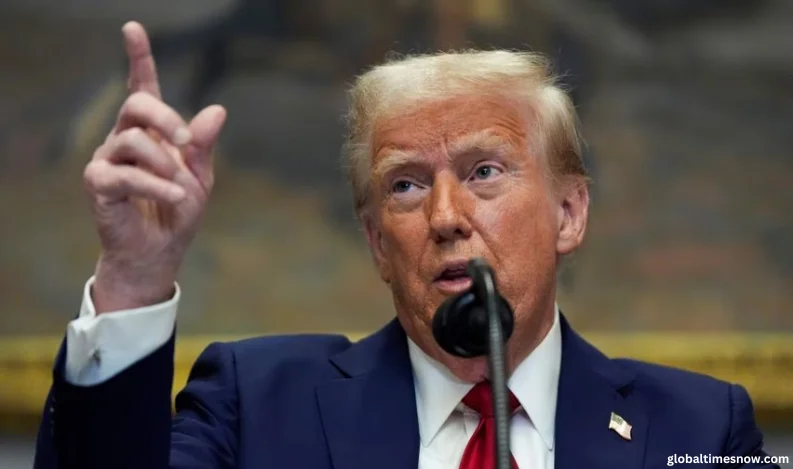Former U.S. President Donald Trump has defended the decision by the Department of Government Efficiency (DOGE) to cut a $21 million U.S. taxpayer-funded grant intended to support voter turnout efforts in India. Trump questioned the rationale behind allocating American funds for foreign electoral programs while pointing out the financial strength of India.
"Why are we giving $21 million to India?" Trump remarked during a press interaction at his Mar-a-Lago residence in Florida. "They have a lot more money. They are one of the highest taxing countries in the world in terms of us. We can hardly get in there because their tariffs are so high. I have a lot of respect for India and their Prime Minister, but giving $21 million for voter turnout? In India? What about voter turnout here?"
DOGE's Foreign Assistance Review Cancels Multiple Grants
On February 16, the Department of Government Efficiency (DOGE)—led by billionaire entrepreneur Elon Musk—released a detailed list of foreign aid programs that have been scrapped under its cost-cutting measures. The announcement was made via a post on X (formerly Twitter), where DOGE labeled several international assistance programs as excessive or unjustifiable.
Among the cancelled grants were:
- $21 million for voter turnout efforts in India
- $29 million for "strengthening the political landscape" in Bangladesh
- $39 million for fiscal federalism and biodiversity conservation in Nepal
The move aligns with Musk’s stated goal of reducing wasteful spending and ensuring U.S. taxpayer money is used for domestic priorities.
BJP Calls It "External Interference" in Indian Elections
India's ruling party, the Bharatiya Janata Party (BJP), welcomed the decision, calling the now-cancelled U.S. funding an attempt at external interference in India's electoral process.
"This definitely is external interference in India's elections. Who gains from this? Not the ruling party, for sure!" BJP national spokesperson Amit Malviya said in a statement.
Malviya also alleged that such foreign-funded initiatives were part of a broader strategy to influence Indian institutions. He singled out billionaire investor George Soros, whose Open Society Foundations have been accused by right-wing political figures of influencing political processes worldwide.
"Once again, it is George Soros—a known associate of the Congress party and the Gandhis—whose shadow looms over our electoral process," Malviya claimed.
Congress Accused of Allowing Foreign Influence in Indian Democracy
The BJP has long been critical of foreign-funded NGOs and civil society organizations operating in India, expressing concerns about their impact on governance. Malviya also flagged a controversial 2012 Memorandum of Understanding (MoU) signed between the Election Commission of India and The International Foundation for Electoral Systems (IFES)—an organization linked to Soros’s Open Society Foundations.
"The Congress-led UPA government systematically allowed foreign involvement in our governance structures. Ironically, those questioning the new transparent process of appointing India’s Election Commissioner had no hesitation in handing over our electoral system to foreign entities," Malviya added.
What Next? Implications of DOGE’s Funding Cuts
While Trump’s remarks and DOGE’s decision have stirred political debate, the larger question remains whether the U.S. will continue to provide foreign electoral assistance in the future. With growing scrutiny over international aid spending, further reviews of similar programs could follow, particularly as the U.S. shifts its focus toward domestic economic concerns.
Meanwhile, India's opposition parties are yet to formally respond to the funding cut, but the debate over foreign influence in India's elections is expected to remain a contentious issue ahead of the upcoming general elections.























